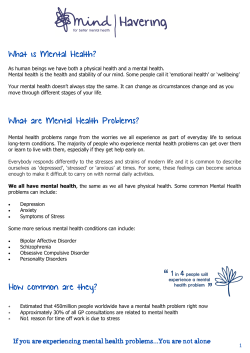
Yarrabah School Policy OPERATIONAL
Yarrabah School OPERATIONAL Policy Rationale: Parents need to select a school that best suits their expectations and the needs of their child. Background: School Culture Yarrabah is a school that embraces families. Our philosophies are based on the values of acceptance, tolerance, trust, respect, dignity, empathy and support. Aims: To provide the best, fair and equitable educational and therapy programs for all our students. To enhance student learning with independent life skills and general programs. To enhance student learning by introducing new innovations based on research and current trends (eg. technologies). Implementation: Yarrabah School operates under the governance of the Yarrabah School Council, a legal entity and a body corporate constituted under Part 2.3 of the Education and Training Reform Act 2006. The Yarrabah School Council is responsible for setting the long term strategic plan of the school and maintaining oversight (not management) of the school’s operation. Yarrabah School is managed by the School Principal and senior staff in accordance with the Education and Training Reform Act 2006, the Education and Training Reform Regulations 2007 and in accordance with DEECD policies. We deliver: Highly professional, skilled staff to deliver high quality educational and therapy programs for all students. The School Curriculum is guided by ABLES and AUSVELS. www.education.vic.gov.au/healthwellbeing/wellbeing/ables.htm http://ausvels.vcaa.vic.edu.au/ Early Education Program (EEP) is guided by Victorian Early Years Learning and Development Framework (VEYLDF) and Early Years Learning Framework for Australia (EYLFA). Curriculum developed by staff according to student needs, new innovations, and current technologies. Individual Learning Plans (ILP’s) established by educational professionals and therapists in consultation with parents. Student Support Group Meetings (SSG’s) – according to DEECD guidelines (See SSG Policy). Therapy Programs based on an “Environmental Model”. (Therapists work with students within curriculum areas in the classroom). Recreational Programs. Extra Curricular Activities, at parent consent that incur a financial cost. These include horse riding, swimming, bowling, SailAbility (Inters & Seniors), community access, camps, hydrotherapy, basketball (Middle School) and excursions. Student Wellbeing Plans developed by professionals in consultation with parents at a Student Wellbeing Meeting, when required. Effective Transitions at all levels of the school. Professionally considered class placement of students (see Class Placement Policy). Link-it Program between school and home to assist with the development of educational and social skills. Transparent approach to educational programs by inviting parents to participate in their child’s learning via “Come See” sessions throughout the year. Parent Support Programs. Open communication via communication books (see Communication Book Policy and Communication between Staff and Parents Policy). Professional Learning Communities (PLC’s) within the school which comprise of Early Education, Junior, Upper Juniors, Middle, Inters and Senior, Therapy and Specialist areas. Pleasant, inviting environment in which students learn and play. Physical resources that enhance all aspects of student learning across all levels of development Confirmed budgets to support Curriculum delivery and maintain the school. Definitions: Student Support group meetings. These meetings are to discuss a student’s individual learning plan and how best the student can be supported in their learning. Individual Learning Plans. These plans are developed to set focus goals for the student in each area of the curriculum and required therapy. Student Wellbeing plans and Meetings. These refer to behaviours and management strategies. Evaluation: Annual Parent Survey and Staff Survey This policy will be reviewed as part of the school’s three-year review cycle. This policy was last ratified by School Council in.... April 2012
© Copyright 2025




















